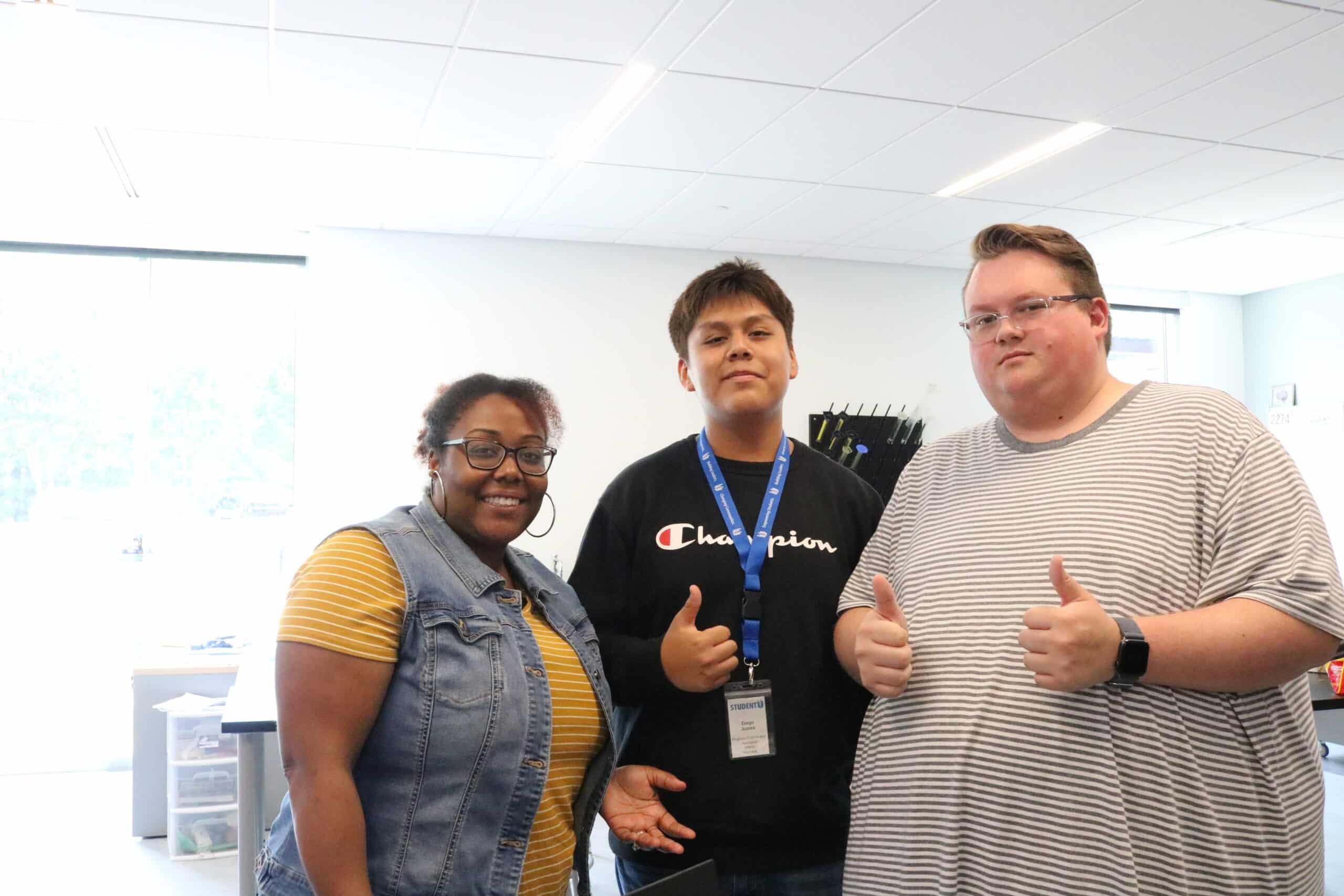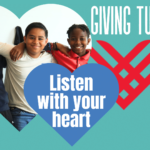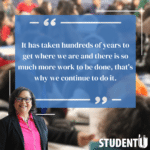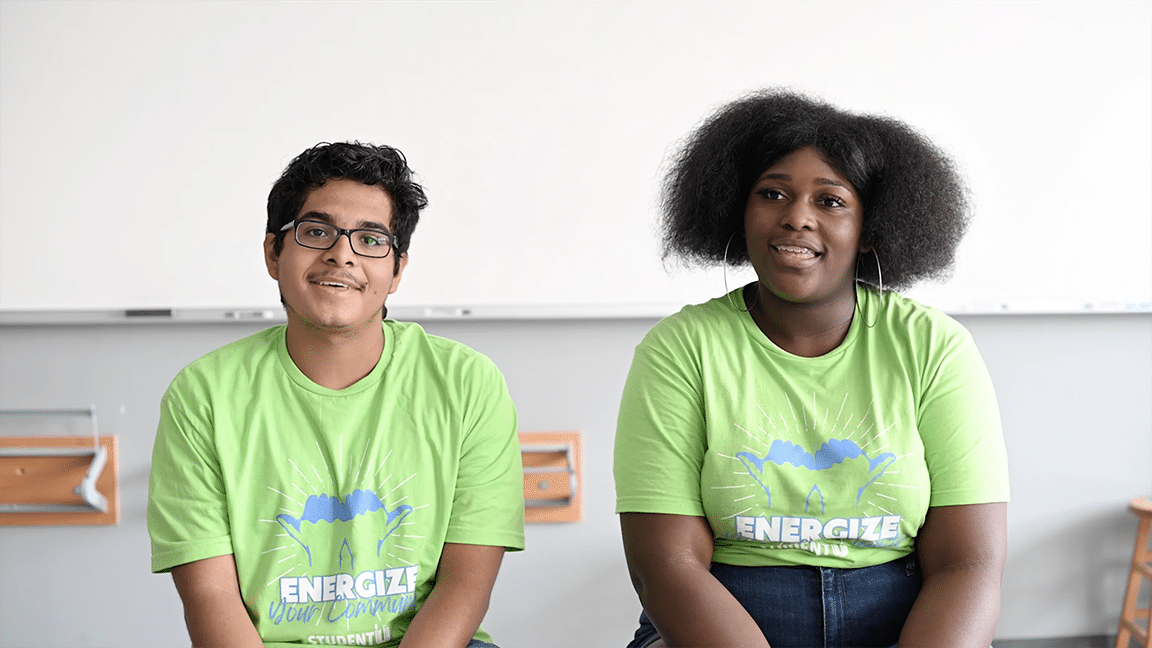Reflections on Student U’s Mentor Teacher Model from a 5-Year Veteran
By Allie Bradford Brown
Welcome to the Youth Work 101 Series! Student U offers this blog series to support youth work practitioners, educators, advocates for young people, and after-school professionals in their work by sharing what has worked for us. For insights on this month’s topic, Allie Bradford Brown, Student U’s Advancement Writing Associate, interviewed Kole Butler, a graduate student in Choral Conducting and Music Education at Radford University who has taught at Student U’s Summer Academy since 2018.
“A goal of mine… has always been to guide and support students in an impactful way, similar to the opportunities provided to me when I was growing up.” Although this may sound like a line from a commencement speech, it’s actually the caption on one of Kole Butler’s (@kolfege) viral TikTok posts.
Kole joined Student U’s Summer Academy teaching cohort in 2018 in an unusual way–all the way from West Virginia, at the recommendation of his cousin, Amy Salo, then Student U’s Chief Operating Officer. Kole was a music major and aspiring music teacher at West Virginia University. Anticipating free time in the summer after his freshman year, Kole applied and was hired for the position of Summer Academy High School Elective Teacher.
“I had absolutely no idea what I was getting into,” he recalls with a smile. “I thought I’d just be singing songs with the students.” Kole had no formal teaching experience prior to this opportunity, but fortunately, Student U has a plan for that, including an intensive two-week teacher orientation, a mentor teacher model, and close supervision and support throughout Summer Academy. This model makes teaching at Student U’s Summer Academy an excellent starting point for new teachers.
Kole says he was “forever changed by Student U’s teacher orientation. It molded me into the teacher and human I am today.” The orientation Kole attended featured conversations around the education system as a whole, race and racism, privilege, and teaching strategies. “It set me up so well for my first summer as a teacher.”
Kole acknowledges that his first teaching summer was challenging. “I was young. Teaching is trial and error–you go in, try things, they don’t work.” Kole identifies his earliest error as focusing on product over process. He stressed and struggled because he was deeply worried about the students in his class sounding perfect in their final performance (product), so he missed out on so much of the relationship-building, educating, and mentoring that he and the students really needed (process). “I am forever thankful to Michelle Norwood (then Kole’s Program Coordinator and currently Student U’s Program Director) for pointing that out to me in my first year. Michelle is an amazing teacher and one of the most gentle, inspiring human beings I’ve ever met. I’ve learned so much from her. And the students did sound so great in their final performance.”
Kole taught for three more summers, then transitioned to be a High School Mentor Teacher. Student U elective teachers get to plan their own curriculum for Summer Academy based on their interests and expertise. As a new mentor teacher, Kole was excited to use everything he’d learned to help other high school elective teachers plan their coursework and help their students succeed with whatever they were learning. Still, he was worried that he wouldn’t have enough to offer–“all I had was music knowledge.” However, Kole’s own mentor teacher, Ellen Holmes (now a High School Program Coordinator at Student U), helped him see that he had so much knowledge and experience to share and continued to mentor him as Mentor Coach. “I learned so much from Ellen. She is a star, and I was so glad she continued to support my teaching and mentoring.”
This is part of what makes Student U’s mentor teacher model so successful: there is always someone to support you, a colleague to bounce ideas off of, and a team of professionals who work for each student and teacher’s success. As Kole learned in his first year as a teacher, “Teaching is trial and error–there is no secret recipe. Mentorship brings somebody with experience and background knowledge, their ideas and toolbox, and pairs them with someone younger or newer.” Mentors also learn from younger teachers. All around, it’s an exciting process of learning and sharing.
Around this same time, Kole started his master’s program in choral conducting and music education, and worked remotely as a mentor teacher from Radford, including leading professional development sessions and working as a curriculum developer at Student U. He would use what he was learning in his graduate program to improve his teaching at Student U, and vice-versa. “Student U continues to pour into me and help me on the path that I’m on.”
Student U also gave Kole a new lens through which to see the world–he acknowledges the privilege he has held and that before Student U, he hadn’t really “considered the lives of others or walked in their shoes.” A lot of what Kole learned in his early years at Student U required him to step back and consider how he could make students’ summer experiences meaningful, even though he had experienced life so differently. This is where Michelle’s mentorship and insights on product vs. process made a huge difference for Kole–and his students.
With this clearer worldview, Kole sees his role as providing “windows and mirrors” for his students. Windows allow us to look through them into other cultures and life experiences through the music making process. Mirrors allow students to see themselves in the content they’re learning. We need both to teach and share music successfully. Kole admits that early on, his curriculum was boring, because he only put his own experience into it. But after some tough conversations with himself and others, and lots of research, learning, and reading, he has a more varied and dynamic repertoire to teach from, including music from Black and Latinx cultures. “That is exciting, because with a lot of that music, I’m not the expert anymore; my students are. We’re all learning from each other.” Kole emphasizes that education should be joyful and collaborative–as an educator, he strives for these ideals while maintaining high standards. It all comes back to relationships–that’s what changes students and teachers for the better.
“Where I am right now is mostly due to Student U, because they helped mold that side of me. Student U helps inform and teach all these teachers who then take all these ideas every which way (into their own classrooms). So many excellent teachers are now off doing their own thing, but have taken the seeds that Student U planted to plant somewhere else–to start to blossom elsewhere.”
If you scroll through Kole’s TikTok, a few things will become immediately clear: Kole loves his students, his students admire him, they have a great time in the classroom, and they all hold each other to high standards. Although Kole says there’s no secret recipe to being a successful teacher… that might be it.
Kole concludes with a word of advice for potential teachers: “If you are considering teaching, I want to say that Student U provides a lot of freedom for educators to mold a curriculum that centers around meaningful conversations and purposeful learning. It’s a great environment to challenge yourself and change your thought process around education. Student U has a place for everybody.”
___
Donate to Student U and keep posts like this one coming.
Subscribe to this blog by entering your email.










